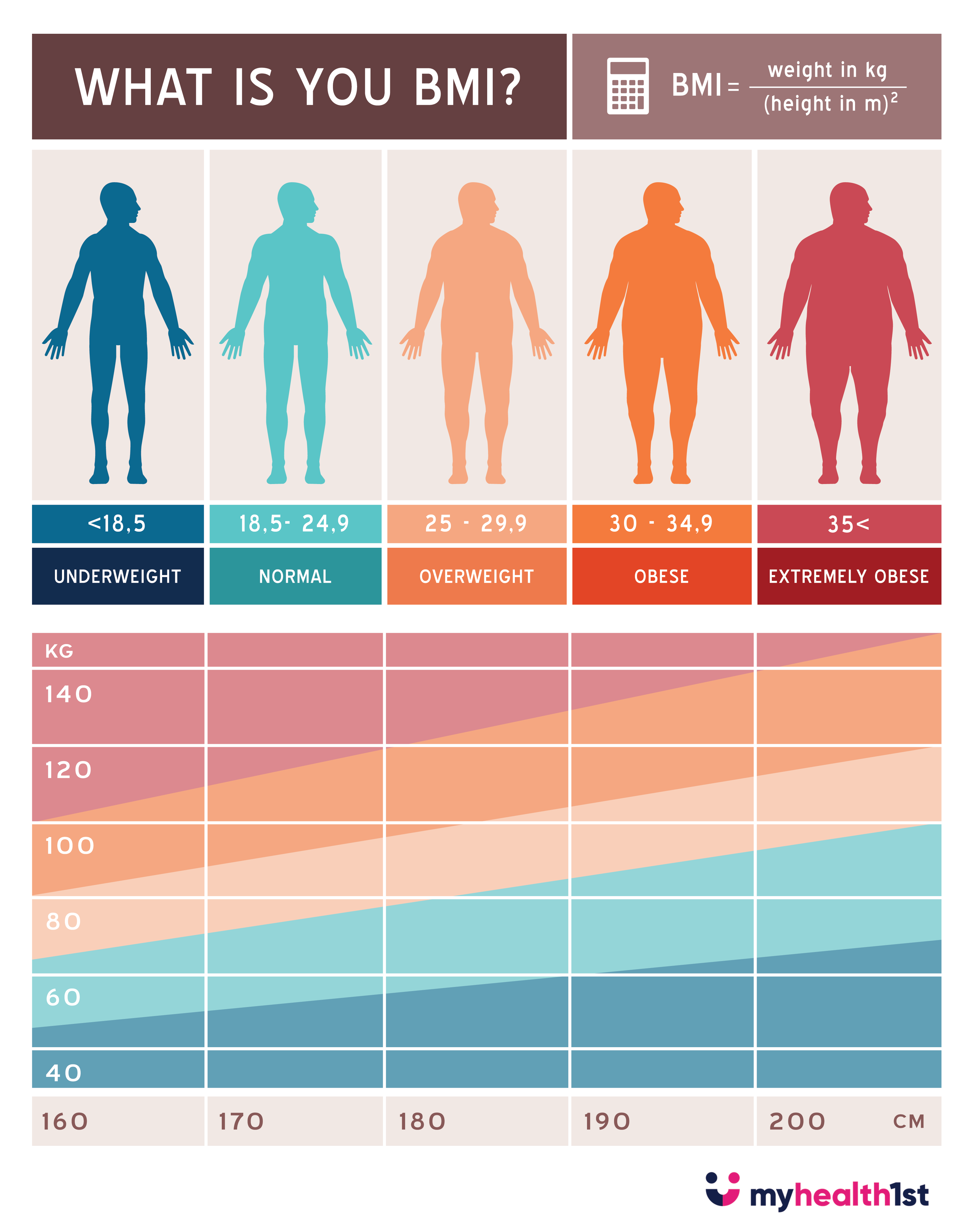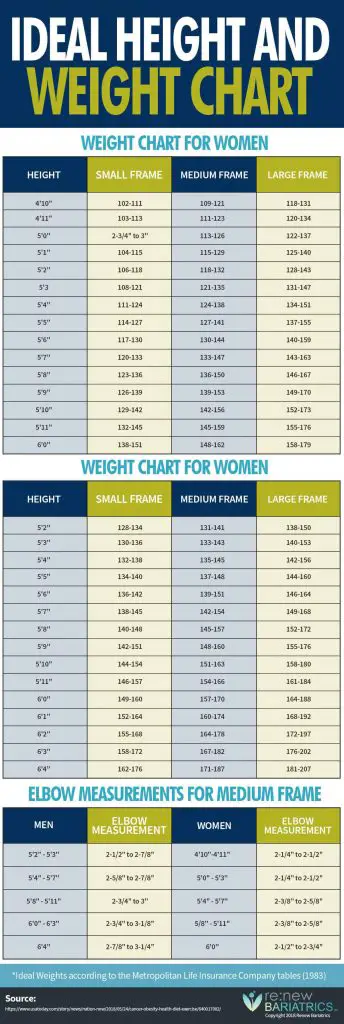What is a good weight depends on a variety of factors, such as your age, height, gender, body type and lifestyle. Generally, a healthy weight for adults is defined as a body mass index (BMI) between 18.5 and 24.9. A BMI of less than 18.5 is considered underweight, while a BMI of 25 to 29.9 is considered overweight. A person with a BMI of 30 or more is said to be obese. However, these values are only general guidelines and not absolute.
Your doctor can help you determine your ideal weight based on your age, body type and lifestyle. A healthy weight is not only about looking good, but also about being healthy. Eating a balanced diet and exercising regularly are key to maintaining a healthy weight. Eating a variety of fruits and vegetables, lean proteins, whole grains and limiting unhealthy fats and sugars will help you reach and maintain a healthy weight. Creating long-term habits of healthy eating and exercise are the most effective ways to achieve a healthy weight. Regular physical activity helps to achieve a good weight and strengthens our muscles and bones. It also helps to reduce stress and boost our overall wellbeing. In the end, a good weight is about finding the balance between looking and feeling good. Achieving a healthy weight is a long-term goal that requires dedication and a healthy lifestyle. With the right attitude and dedication, a good weight is achievable.
what s a healthy weight

It should be a weight that you can maintain over a long period of time with a healthy diet and exercise program. To find out what a good weight for you is, you can use a BMI calculator or ask a health care professional. Knowing your Body Mass Index (BMI) can also help you to determine if you are at a healthy weight. If you’re at a healthy weight, you should feel good about yourself and have plenty of energy. Eating a balanced diet, being active, and getting regular check-ups is key to maintaining a healthy weight.
Being underweight, overweight, or having an unhealthy body composition can have a negative effect on your health. Unhealthy weight can increase your risk of chronic disease and decrease your life expectancy. It is important to remember that having a healthy weight is not just about your appearance. It is about having a healthy body and good quality of life. Having a good weight is also about feeling physically and mentally healthy and enjoying life.
What does ‘healthy weight’ really mean?
What does it mean to have a healthy weight? It is actually a difficult question to answer, as the concept of what is considered a good weight is different for everyone. The most important factor in determining a healthy weight is considering the individual’s body type, age, and activity level. A healthy weight is one that is achieved through a balanced diet, physical activity, and lifestyle changes. When determining what a good weight is for an individual, it is important to consider their body composition. Body composition refers to the ratio of fat to muscle mass and can be measured in various ways.
A person’s body composition will influence their ideal weight. A healthy weight should also take into account a person’s activity level. People who are physically active will generally require more energy and will be able to maintain a higher body weight than those who are more sedentary. Finally, it is important to remember that there is no such thing as a “perfect” weight. Everyone is different and needs to find the right balance in terms of nutrition, exercise, and lifestyle. A healthy weight is one that allows an individual to feel their best and maintain a healthy lifestyle.
What determines healthy weight?
A healthy weight is determined by a person’s body mass index (BMI). To calculate your BMI, you would divide your weight in kilograms by your height in meters squared. A BMI between 18.5 and 24.9 is considered to be in a healthy weight range. Another factor in determining a healthy weight would be the person’s body composition. This means the ratio of fat to muscle in the body.
A healthy ratio of fat to muscle can help a person stay within their healthy weight range. Gender also plays a role in determining an individual’s healthy weight range. Generally, men have a slightly higher ideal weight range than women due to size and muscle mass differences. Having good nutrition is also important for maintaining a healthy weight. Eating a balanced diet that is high in fruits, vegetables, and lean proteins can help support healthy weight. Additionally, getting enough physical activity and enough sleep can also help you achieve a healthy weight. Overall, a healthy weight can be determined by a person’s BMI, body composition, gender, nutrition, physical activity, and sleep. Working on all of these factors can help you reach your goals and maintain a good weight.
How can you maintain a healthy weight?
Maintaining a healthy weight is essential for overall health and wellbeing. A good weight is determined by a number of factors including age, gender and your body frame. There are a few steps you can take to ensure you maintain a healthy weight. First of all, it is important to maintain a healthy and balanced diet, with plenty of fresh fruit and vegetables, lean proteins, whole grains and low-fat dairy. Additionally, incorporating physical activity into your daily routine is key to maintaining a healthy weight.
This could be anything from a 30-minute walk to a high-intensity interval training session. It is also important to consider other lifestyle factors. Try reducing stress levels and getting a good night’s sleep. This can help balance hormones and improve overall health. Finally, be mindful of your portion sizes. Make sure you are eating just the right amount and trying not to overindulge. By following these steps, you can ensure that you maintain a healthy weight.
How do you lose weight in a healthy way?
Achieving and maintaining a good weight is important for overall health. To do this, it is important to lose weight in a healthy way. A combination of eating a healthy, balanced diet and regular exercise is the best way to achieve a healthy weight. Eating nutrient-dense foods, such as lean proteins, whole grains, fruits, and vegetables, can help provide essential nutrients and help reduce calorie intake. Regular physical activity, such as walking, running, or swimming, can also aid in weight loss and help maintain a healthy weight.
It is also important to drink sufficient amounts of water and get enough sleep to maintain a healthy weight. Staying hydrated and getting enough rest helps to increase energy, which can help with exercise and activity. The key to losing weight in a healthy way is to make sure to do it slowly and steadily, without crash diets or extreme exercise regimes. It is important to be patient, and to remember that even small changes can lead to big results over time. In order to maintain a healthy weight, it is important to keep up with healthy eating habits, regular physical activity, and adequate rest. With patience and dedication, anyone can achieve a healthy weight.







